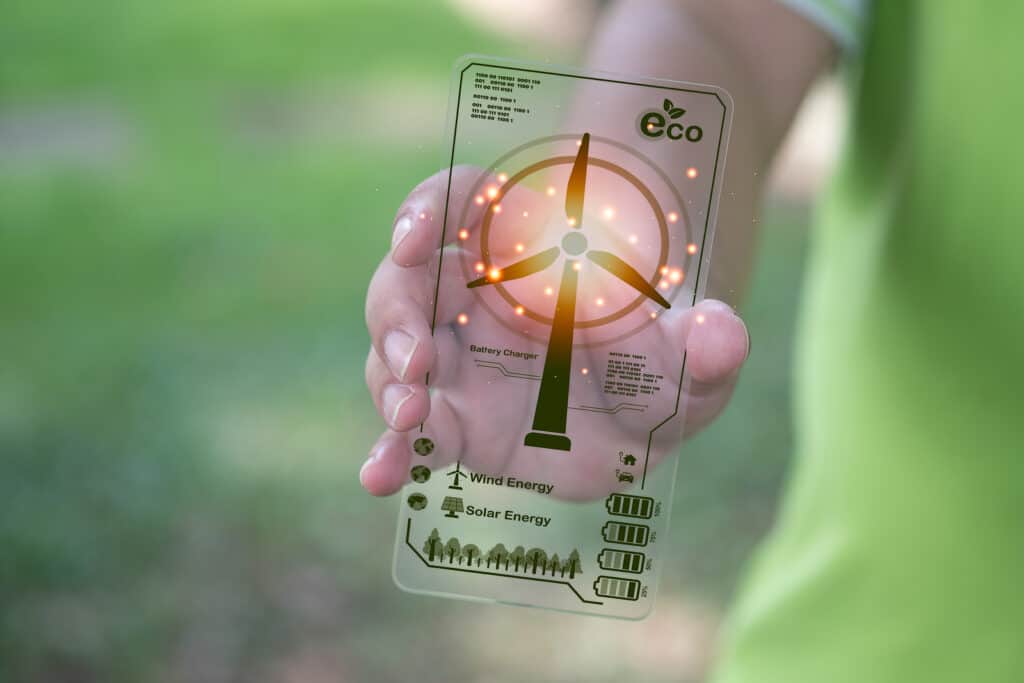Stock Up on Sustainability: A Comprehensive List of Renewable Energy Companies on the Stock Exchange
As a homeowner, I'm increasingly drawn to the idea of investing in renewable energy companies listed on the stock exchange. It's not just about generating clean energy and contributing to a greener future; it's also a practical choice to reduce my electricity bills and save money over time. By embracing renewable energy solutions, I can take control of my energy consumption and potentially cut down on utility expenses.
Renewable energy companies have been making significant strides in the market, and their financial performance indicates a promising future. Their focus on clean energy solutions aligns with my personal commitment to being environmentally conscious. It feels good to know that my investment can support businesses that contribute positively to the environment and sustainability.
What are Renewable Energy Companies?
Small renewable energy companies play a pivotal role in the global transition towards a cleaner, more sustainable future. These forward-thinking businesses are at the forefront of harnessing the power of renewable resources to generate clean energy. By tapping into sources like solar, wind, hydro, and geothermal power, they are actively contributing to mitigating the pressing challenges of climate change and reducing our reliance on fossil fuels.
Through extensive research, development, and innovative technologies, renewable energy companies have made significant strides in maximizing the efficiency of energy generation from these natural sources. They have not only managed to produce electricity on a large scale but have also been actively working on improving energy storage solutions, making renewable energy a more reliable and consistent source of power.
One of the primary objectives of these companies is to minimize carbon emissions, thereby lessening the detrimental impact of greenhouse gases on the environment. By producing electricity without burning fossil fuels, they are helping to combat air pollution, smog, and other health hazards associated with traditional energy sources. Additionally, their efforts contribute to preserving natural habitats and ecosystems, safeguarding biodiversity and wildlife.

Top Renewable Energy Companies on the Stock Exchange
NextEra Energy (NEE)
NextEra Energy stands out as one of the foremost global leaders in the renewable energy sector. Operating wind and solar farms across North America, the company boasts an impressive total capacity of more than 30,000 megawatts (MW) of clean energy. With a substantial market capitalization of approximately $150 billion, NextEra Energy presents itself as a major player in the industry. Moreover, investors are enticed by a dividend yield of 2%, adding to the appeal of this environmentally conscious powerhouse.
Enphase Energy (ENPH)
Specializing in solar technology, Enphase Energy has garnered a significant reputation for its pioneering work in designing and manufacturing microinverters for solar panels. These microinverters are instrumental in enhancing the efficiency and reliability of solar panels, making renewable energy adoption more feasible for consumers. With a market capitalization of around $28 billion, Enphase Energy has solidified its position as an influential force in the clean energy market. Although the company does not offer dividends, its relentless commitment to technological advancement continues to attract investors seeking innovative opportunities.
Brookfield Renewable Partners (BEP)
Brookfield Renewable Partners is an expansive renewable energy company with a diverse portfolio encompassing hydroelectric, wind, and solar power facilities. Impressive in scale, its portfolio boasts over 19,000 MW of renewable energy capacity. The company's market capitalization stands at around $15 billion, reflecting its considerable standing in the renewable energy landscape. Notably, investors can benefit from a dividend yield of approximately 3%, making it an attractive option for those seeking stable returns with an environmentally conscious focus.
First Solar (FSLR)
As a prominent player in the solar energy sector, First Solar has distinguished itself as one of the largest manufacturers of thin-film solar panels. With a market capitalization of approximately $11 billion, the company holds substantial influence in the industry. Though First Solar does not currently offer dividends, its innovative products and contributions to advancing solar technology continue to captivate investors seeking long-term potential in the renewable energy market.
Ørsted (ORSTED)
Hailing from Denmark, Ørsted is a premier renewable energy company engaged in the development, construction, and operation of offshore wind farms. Its focus on harnessing wind energy at sea has propelled it to a market capitalization of approximately $85 billion, making it a key player in the renewable energy realm. Investors looking for a balanced approach to sustainability and returns can appreciate Ørsted's dividend yield of around 1%, offering an attractive incentive to participate in its environmentally responsible ventures.
SunPower Corporation (SPWR)
SunPower Corporation has earned recognition for its cutting-edge solar energy solutions, marked by the design and manufacture of high-efficiency solar panels for both residential and commercial applications. With a market capitalization of around $6 billion, the company holds significant potential in the solar industry. While SunPower Corporation does not offer dividends at present, its dedication to innovation and sustainable energy solutions continues to pique the interest of investors seeking a bright future for renewable energy.
Best Renewable Energy Companies to Work For Financial Performance
Renewable energy companies have performed well financially over the past few years. According to a report by the International Energy Agency (IEA), renewable energy capacity increased by 45% between 2013 and 2018, with solar and wind energy accounting for most of the growth. This growth has translated into strong financial performance for many renewable energy companies use.
For example, NextEra Energy has seen steady growth in its revenue and earnings over the past five years. In 2020, the company's revenue was $17.5 billion, up from $16.7 billion in 2019. Enphase Energy has also seen strong
financial performance, with the company's revenue increasing from $315 million in 2016 to $1.2 billion in 2020. Brookfield Renewable Partners has also seen steady growth in revenue, with the company's revenue increasing from $2.1 billion in 2016 to $3.6 billion in 2020.
Additionally, renewable energy companies to invest in have been relatively resilient during the COVID-19 pandemic. According to a report by the International Renewable Energy Agency (IREA), renewable energy projects have continued to be commissioned and built during the pandemic, and renewable energy stocks have outperformed fossil fuel stocks during the crisis.

Contribution to Sustainability
The contribution of renewable energy companies to sustainability is a multifaceted and crucial aspect of their operations. By harnessing clean and renewable resources like solar, wind, hydro, and geothermal power, these companies play a pivotal role in combatting climate change and reducing the environmental impact of traditional energy sources.
Mitigation of Carbon Emissions
Renewable energy companies are instrumental in curbing greenhouse gas emissions, a primary driver of global warming and climate change. By generating electricity without relying on fossil fuels, they significantly reduce the release of harmful pollutants such as carbon dioxide and methane into the atmosphere, helping to mitigate the adverse effects of climate change.
Advancement of Energy Efficiency
These companies constantly strive to enhance the efficiency of renewable energy technologies. From improving the performance of solar panels and wind turbines to optimizing energy storage systems, their innovations lead to more effective utilization of renewable resources, reducing energy wastage and promoting sustainable energy consumption.
Preservation of Natural Resources
Utilizing renewable energy sources helps conserve finite natural resources such as coal, oil, and natural gas. By shifting away from non-renewable fuels, renewable energy companies contribute to the preservation of these resources for future generations while mitigating the environmental degradation associated with their extraction and consumption.
Promotion of Biodiversity and Ecosystem Health
Traditional energy generation methods, such as fossil fuel extraction and large-scale hydropower projects, often disrupt ecosystems and pose risks to wildlife. In contrast, renewable energy projects are generally less invasive, causing minimal disruption to ecosystems and preserving biodiversity.
Creation of Green Jobs and Economic Growth
The renewable energy sector is a significant driver of employment and economic growth. These companies create jobs in various fields, such as engineering, manufacturing, installation, and maintenance of renewable energy infrastructure. As the sector expands, it stimulates local economies and fosters a sustainable workforce.
Energy Security and Independence
Diversifying energy sources by investing in renewables enhances energy security, reducing reliance on imported fossil fuels and mitigating geopolitical risks associated with traditional energy supply chains.
Community Engagement and Social Benefits
Many renewable energy projects involve local communities, fostering partnerships and providing economic opportunities in rural and remote areas. Additionally, renewable energy initiatives often prioritize clean energy access for marginalized communities, promoting social equity and inclusivity.
Global Environmental Leadership
Renewable energy companies often spearhead global initiatives and partnerships aimed at addressing climate change and advancing sustainability. Their commitment to reducing carbon footprints and promoting clean energy solutions sets an example for other industries and governments to follow.
Resilience to Climate-Related Risks
With climate change leading to more frequent extreme weather events, renewable energy sources offer a more resilient energy infrastructure. Distributed renewable systems, like solar panels on rooftops, can reduce vulnerability to power outages caused by natural disasters.
Risks and Challenges
While renewable energy companies have shown commendable financial performance and a strong commitment to sustainability, there remain certain risks and challenges that investors should be aware of when considering investments in this sector. Understanding these factors is crucial for making informed decisions and navigating potential uncertainties.
Regulatory Uncertainty
One of the primary risks for renewable energy companies is the ever-changing landscape of government policies and incentives. These companies heavily rely on supportive regulations and subsidies to fuel their growth. Sudden shifts in government priorities or alterations in renewable energy policies could adversely affect the financial viability of ongoing projects and potential investments, creating uncertainty for investors.
Competition from Fossil Fuel Companies
Despite the significant strides made by renewable energy, fossil fuel companies continue to dominate the global energy market. These traditional energy giants possess substantial financial resources and political influence, making it challenging for renewable energy companies to compete on a level playing field. The transition from fossil fuels to renewable energy sources could face resistance, hindering the growth prospects of renewable energy companies.
Technical Challenges – Intermittency and Grid Integration
Renewable energy sources such as solar and wind are inherently intermittent, relying on weather conditions for power generation. The variability in energy output throughout the day and year poses challenges in integrating renewable energy into existing power grids. Ensuring a consistent and reliable energy supply becomes a technical hurdle that requires sophisticated energy storage systems and grid infrastructure upgrades.
Project Financing and Investment Risks
Many renewable energy projects require substantial upfront investments, and project financing can sometimes be challenging to secure. The long payback periods associated with certain renewable energy projects may deter some investors looking for quicker returns. Additionally, unforeseen technical issues or delays in project implementation can increase financial risks for investors.
Market Price Volatility
The price of renewable energy technologies, such as solar panels and wind turbines, can be subject to fluctuations due to factors like supply chain disruptions, changes in raw material prices, and global economic conditions. Such volatility can impact profit margins and overall financial stability for renewable energy companies.
Land Use and Environmental Impact
Some renewable energy projects, particularly large-scale installations, may require significant land use, potentially leading to conflicts with local communities, biodiversity loss, or disruption of ecosystems. Balancing the need for renewable energy expansion with environmental and social considerations can be a delicate challenge.
Conclusion
As I conclude my research into renewable energy companies on the stock exchange, I am even more convinced of the significance of investing in clean and sustainable energy solutions. The journey began with a desire to reduce my electricity bills and save money as a homeowner, but it has evolved into a powerful commitment to contribute positively to the environment and support a greener future.
Learning about the top renewable energy companies has been eye-opening. Their focus on generating energy from sources like solar, wind, hydro, and geothermal aligns perfectly with my personal commitment to being environmentally conscious. It's heartening to know that by investing in these companies, I can be a part of the global movement towards cleaner and more sustainable energy.
The financial performance of renewable energy companies further strengthens my confidence in this investment choice. Their steady growth and resilience during challenging times, such as the COVID-19 pandemic, demonstrate their potential for long-term stability and success.
Sources:
International Energy Agency (IEA) report on renewable energy: https://www.iea.org/reports/renewables-2019

